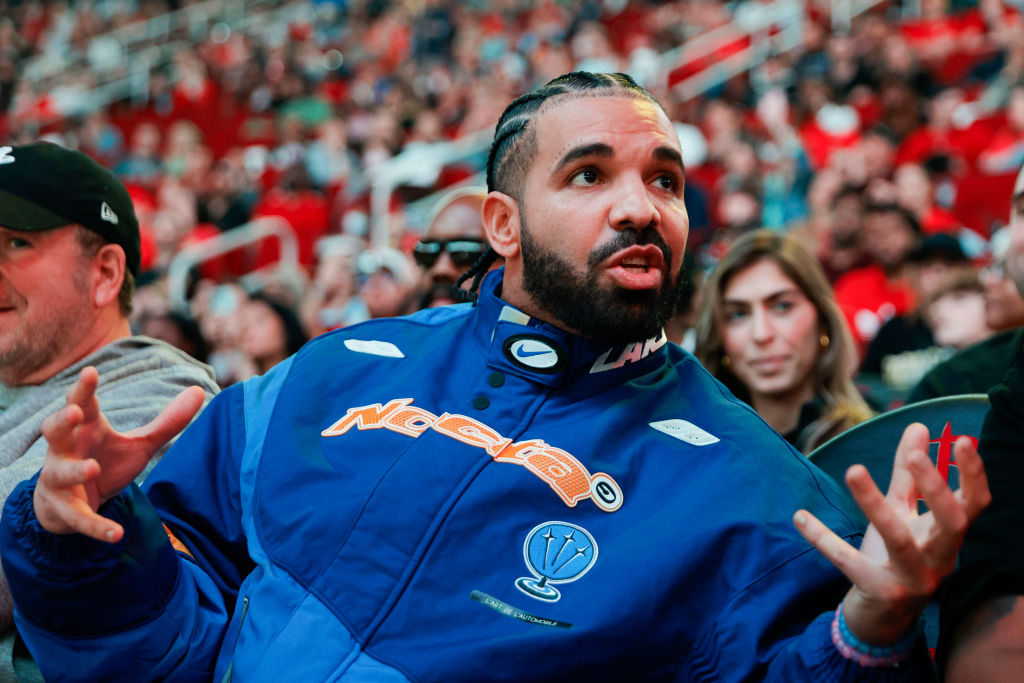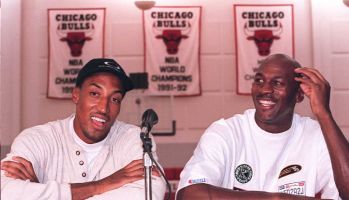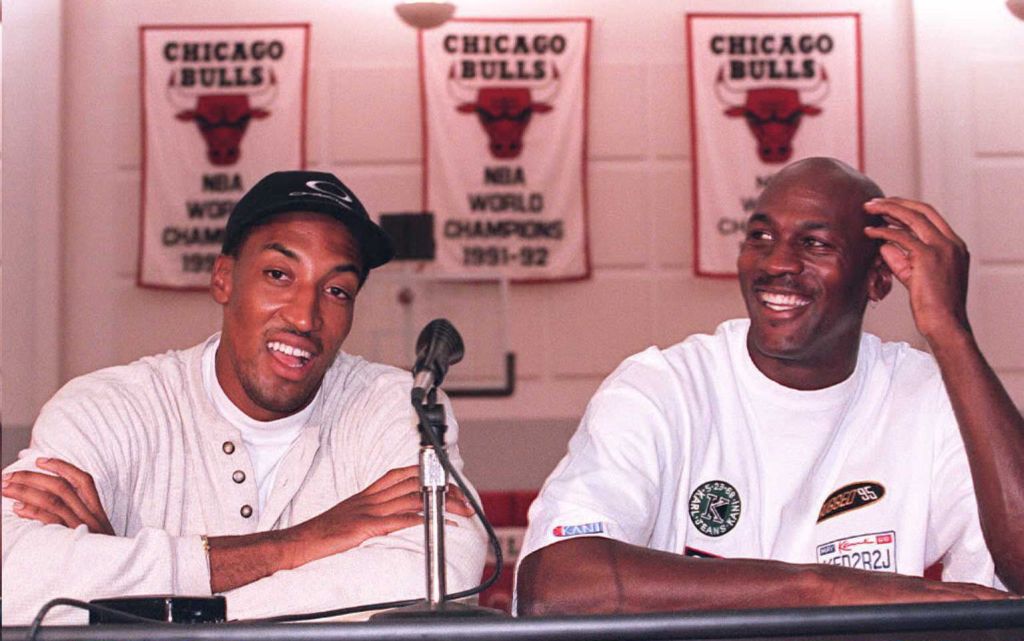
Source: BRIAN BAHR / Getty
The Last Dance, the documentary chronicling the 1997-98 Chicago Bulls premiered last night, and it was everything anybody could have hoped for. It provided sporting content that has been so sorely and desperately needed, as COVID-19 has taken away any sort of competition for the past month. This documentary provided a great gather round the TV moment within all families.
As a self-dubbed “Zillennial,” I didn’t get the honor of watching and understanding what was happening with Michael Jordan and the Bulls during their run in the ’90s. So to me, The Last Dance is the first time I get to sit down and fully dive into what was going on at the time.
Sometimes what can be so tricky about these back in time documentaries about sports is that people know the outcome, they know who is going to win games, they know how someone interacted with someone else, they know about all the significant events that happened with those people during that time. So the challenge is telling the same ole story in a completely new way peeling back layers that previously were not known, while also informing younger generations who may have had no clue what happened behind the scenes during that time.
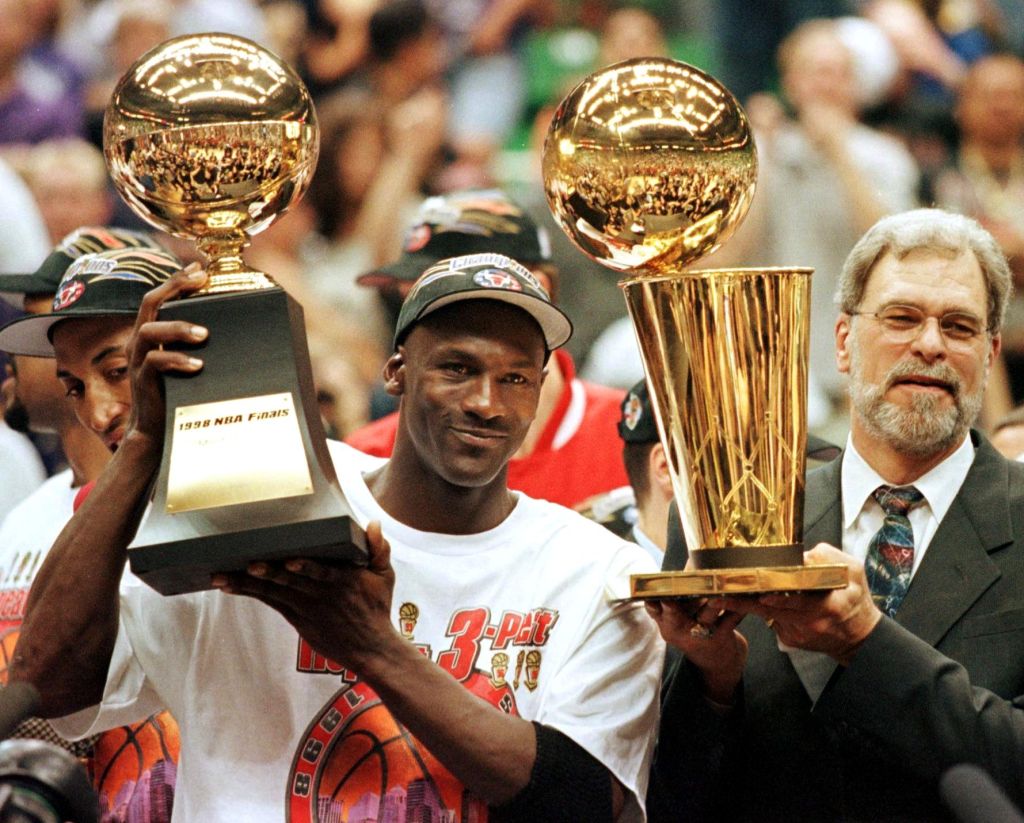
Source: JEFF HAYNES / Getty
Episodes one and two did a great job setting up the storylines, drama, and tension that is going to fuel the season that is dubbed as The Last Dance, by head coach Phil Jackson.
Episode One started by getting into how Jerry Krause, GM of the Bulls from 1985 to 2003, wanted to discuss blowing up the team and starting a complete rebuild following the 1997 championship run. Krause was publicly ridiculed for wanting to break up the team in the midst of winning five championships in seven years. His ego was a driving factor for this decision. Krause was the mastermind behind the dynasty of the Bulls, yet he was getting none of the appreciation or recognition for it. All of that praise was reserved for Jordan, Scottie Pippen, Rodman, and Phil Jackson. Krause was merely an afterthought. Many people believe he thought to himself he built this dynasty once, he could tear it all down and rebuild it again, a decision made based on his little man syndrome.
The will to rebuild the team wasn’t the only heat that Krause was taking in episode one, he made very controversial statements that only created more awkward tension between Krause and the team. His comment that “players do not win championships [alone], but organizations do,” made the players feel disrespected, as though the front office would have those championships without the blood sweat and tears of the players.
Krause was not very well-liked by Bulls players, or Phil Jackson, or the fans in Chicago. You could hear him being booed by the Bulls fans during the ring ceremony at the beginning of the 1997 season. Booing the man who built the team that just delivered five championships in seven seasons is unheard of and downright crazy– it would be like the Golden State Warriors fans booing Bob Myers. That shows how much he wasn’t liked, but despite that, there was something undeniable, he was good at his job. That is what episode two dove into a bit. Krause hired Phil Jackson, drafted Pippen, and Horace Grant, traded for Bill Cartwright, signed Steve Kerr. He did it all, be made all the right moves to position the Bulls to be the team of the ’90s.
Episode two also dove into another critical piece of the dynasty– Scottie Pippen. The meteoric rise of Pippen from a 6’1 guard to a 6’8 forward who played suffocating defense and would accompany Michael Jordan on one of the best NBA teams ever assembled was a story to be told.
Pippen was often regarded as one of the best players in NBA history, and he was on one of the most team-friendly deals in NBA history. Following the 1991 season, Pippen was able to renegotiate his contract and secure a seven-year and $18 million extension. The deal would provide Pippen, who came from a poor upbringing, the financial security blanket of a lifetime. But what would happen next would prove to make that look like a ridiculous deal. In 1992 the NBA’s revenue income ballooned like never seen before, which would increase the players’ salary cap. The second was the Bulls kept on winning, and Scottie was getting better and better. By the time the 1998 season rolled around Pippen was the 122nd highest-paid player in the NBA and only the 6th highest-paid player on his team, in which he was undoubtedly the second-best player.
https://twitter.com/oakleyandallen/status/1252059153968721923?s=20
These contract frustrations led Pippen to decided to get foot surgery that was much needed during the start of the 1997-98 season as opposed to over the summer preceding the season. Michael Jordan thought this was very selfish of Pippen.
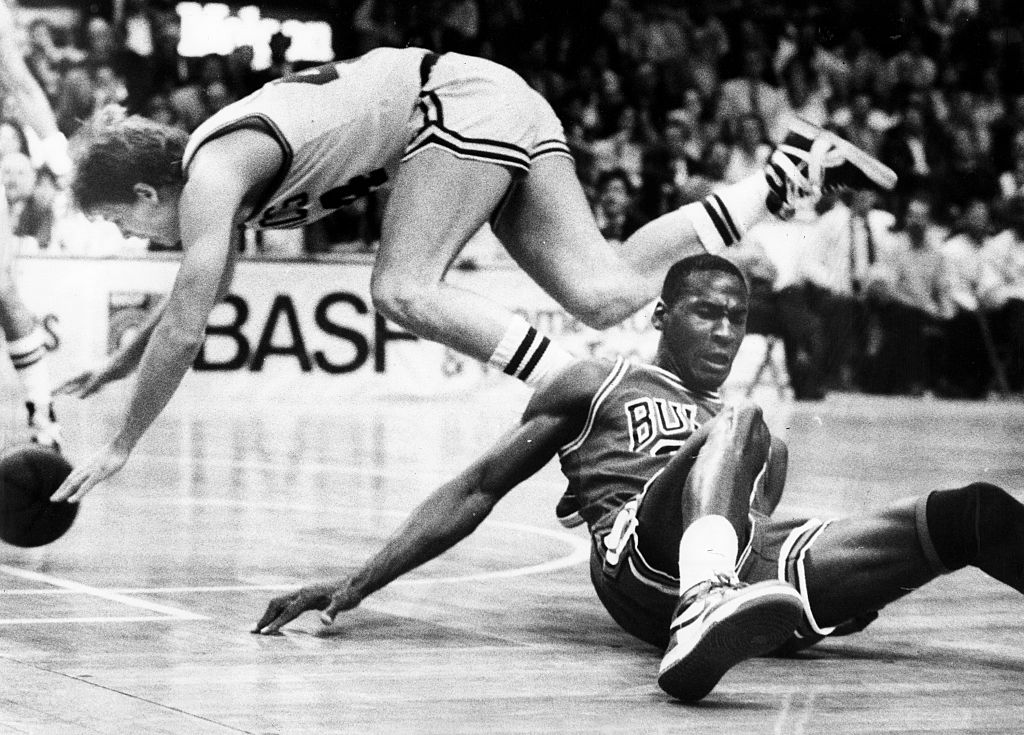
Source: Boston Globe / Getty
Episode two also touched a bit on how Michael started showing glimpses of his what his reign soon would be like as he torched the Boston Celtics in the 1986 playoffs for 49 and 63 points. Even Bird and Magic were both on the documentary saying they knew at that moment, MJ was going to be a big problem for the league in the future.
One of the funny moments of the episodes came from introducing former President of the United States of America Barack Obama as “Chicago Resident.” This is a historical documentary, so it’s normal to cite the person’s occupation or what they were at the time of the happenings, but that was a bit funny and strange to see.
Overall, these first two episodes were everything that we could have asked for from this documentary so far. And next week, get a deep dive into one of the more eclectic personalities on those Bulls teams, Dennis Rodman.
